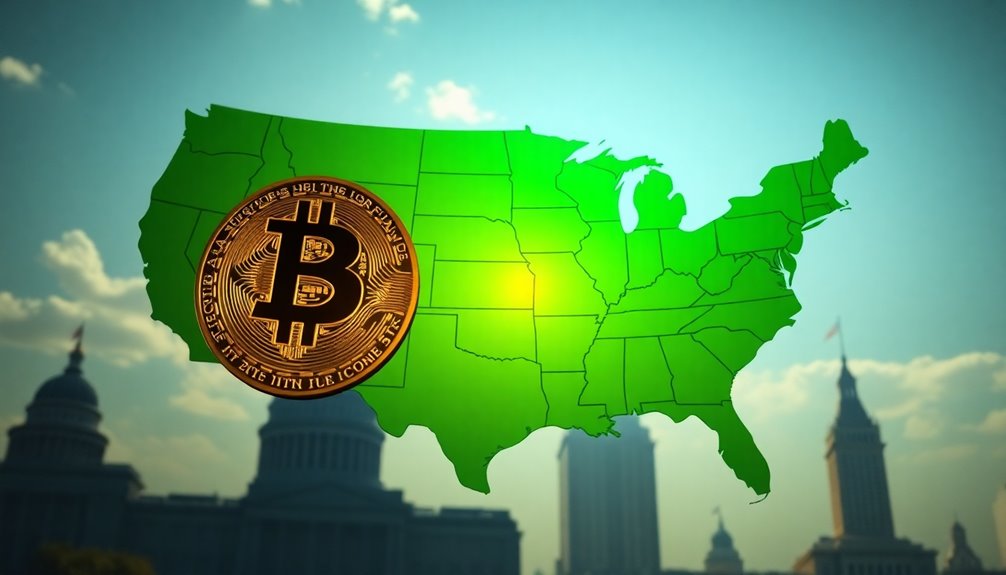As sixteen states embrace Bitcoin for investments and transactions, you have to wonder about the U.S. government's response. With states like Texas and Arizona leading the charge, the federal level seems to lag behind. This shift could redefine financial strategies across the nation. What happens if the government doesn't adapt? The implications could be profound, affecting economic growth and innovation in ways you might not expect.

The U.S. government holds a hefty amount of Bitcoin, primarily seized from criminal activities like the Silk Road, with a current estimated value of around $6.44 billion. Despite this significant stash, there are no current plans to sell these holdings, even amid rumors of potential sales. The U.S. Marshals Service occasionally conducts public auctions to offload confiscated Bitcoin, but the government's overall Bitcoin strategy remains murky and complex, especially given the cryptocurrency's notorious volatility.
As sixteen states actively explore or invest in Bitcoin, the question arises: will the U.S. government fall behind in the crypto revolution? States like Arizona, Utah, and Texas are leading the charge, each looking to establish their own Bitcoin reserves. These initiatives aim to diversify state investment portfolios and take advantage of the growing acceptance of digital assets. Some states are even considering using Bitcoin for everyday transactions, such as tax payments, indicating a shift toward integrating cryptocurrencies into daily finance.
On a national level, President Trump and Senator Cynthia Lummis have proposed the creation of a national Bitcoin reserve. Lummis' ambitious plan involves purchasing 200,000 Bitcoin annually for five years, aiming to accumulate a staggering 1 million Bitcoin over time. This reserve would serve as a long-term investment rather than a strategic deployment asset, reflecting a more serious governmental approach to Bitcoin. Yet, with each administration's changing attitudes, the future of a national digital asset stockpile remains uncertain. Furthermore, the U.S. government's current Bitcoin holdings, valued at approximately $6.44 billion, highlight the potential for a more proactive stance on digital assets.
The implications of state-level Bitcoin investments could ripple through the cryptocurrency market significantly. Locking up large amounts of Bitcoin may reduce its circulating supply, potentially driving up value. However, this also exposes public employees' retirement funds to the unpredictable nature of cryptocurrency markets. Critics raise concerns about the risks associated with Bitcoin's volatility, particularly for state treasuries.
As states take bold steps toward Bitcoin investments, the federal government must consider its role in this evolving landscape. Will it adapt and embrace the digital asset revolution, or will it remain stagnant, risking the chance of falling behind? The clock is ticking, and with each passing moment, the crypto world continues to evolve, pushing for broader acceptance and integration.
The question remains: can the U.S. government keep pace with the states staking their futures on Bitcoin?









